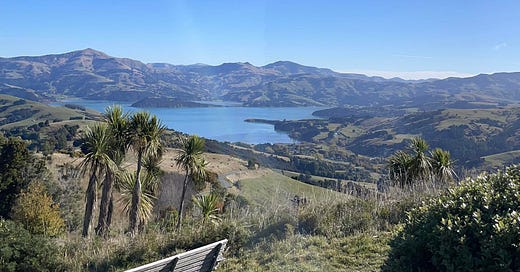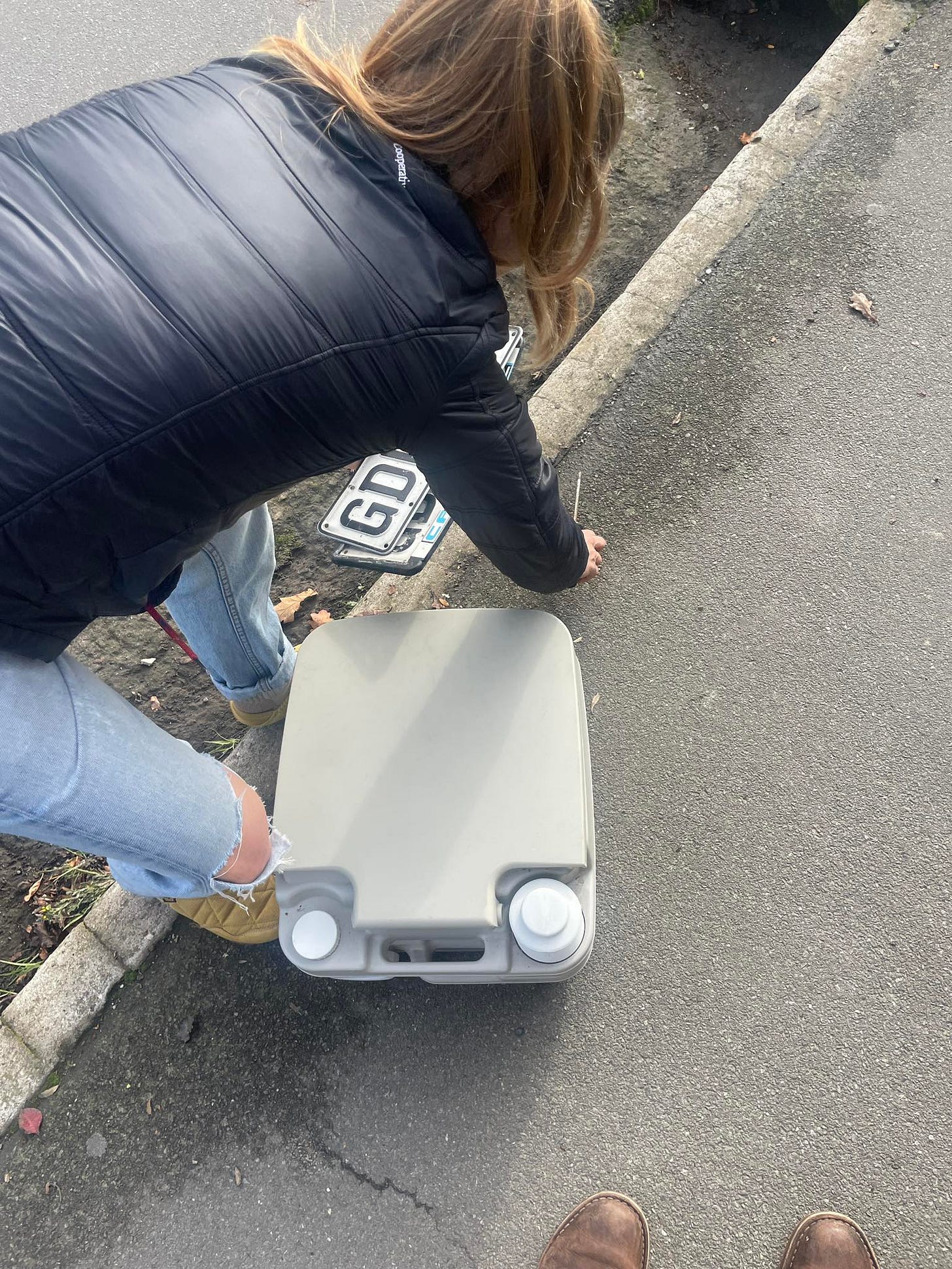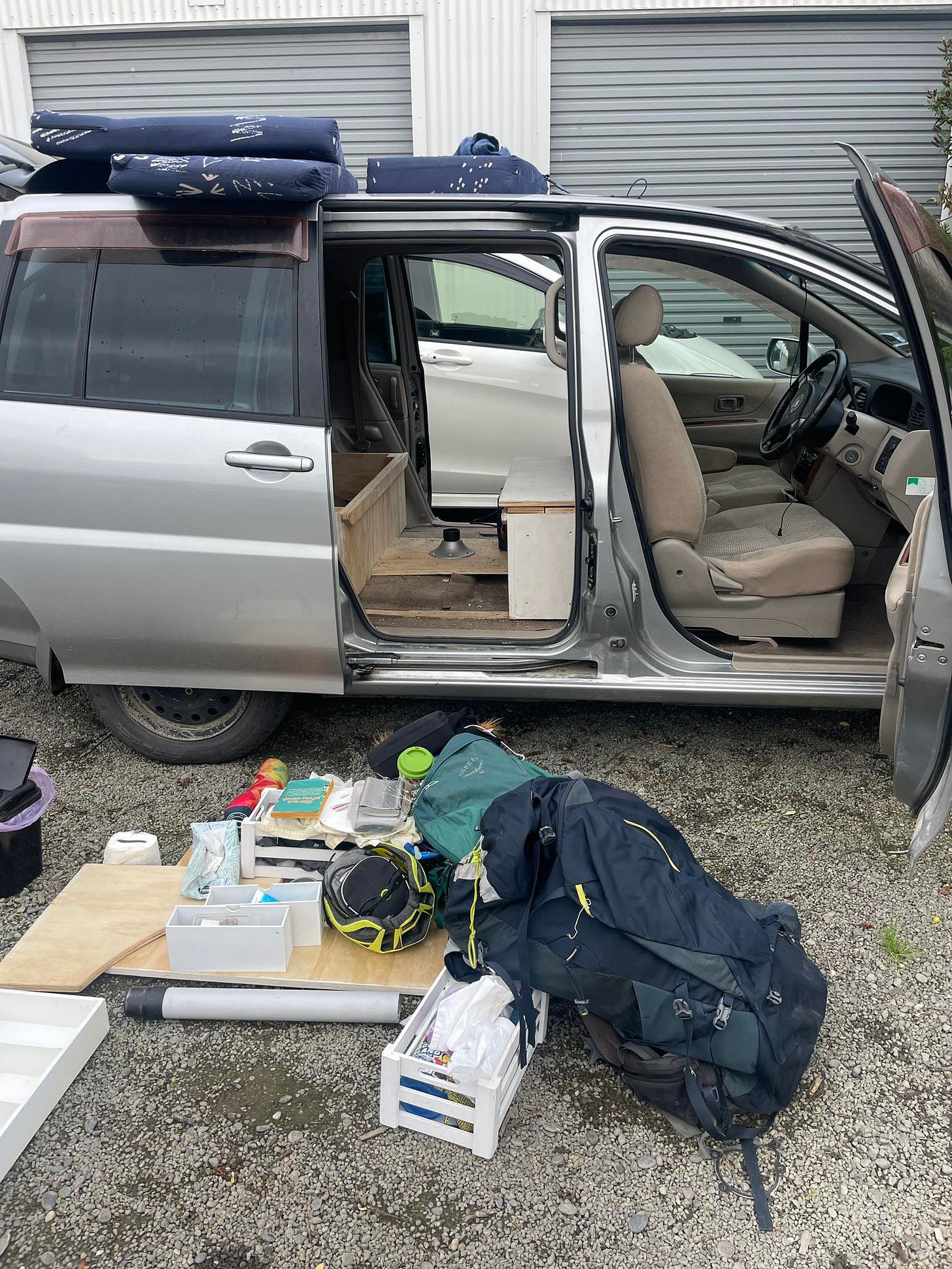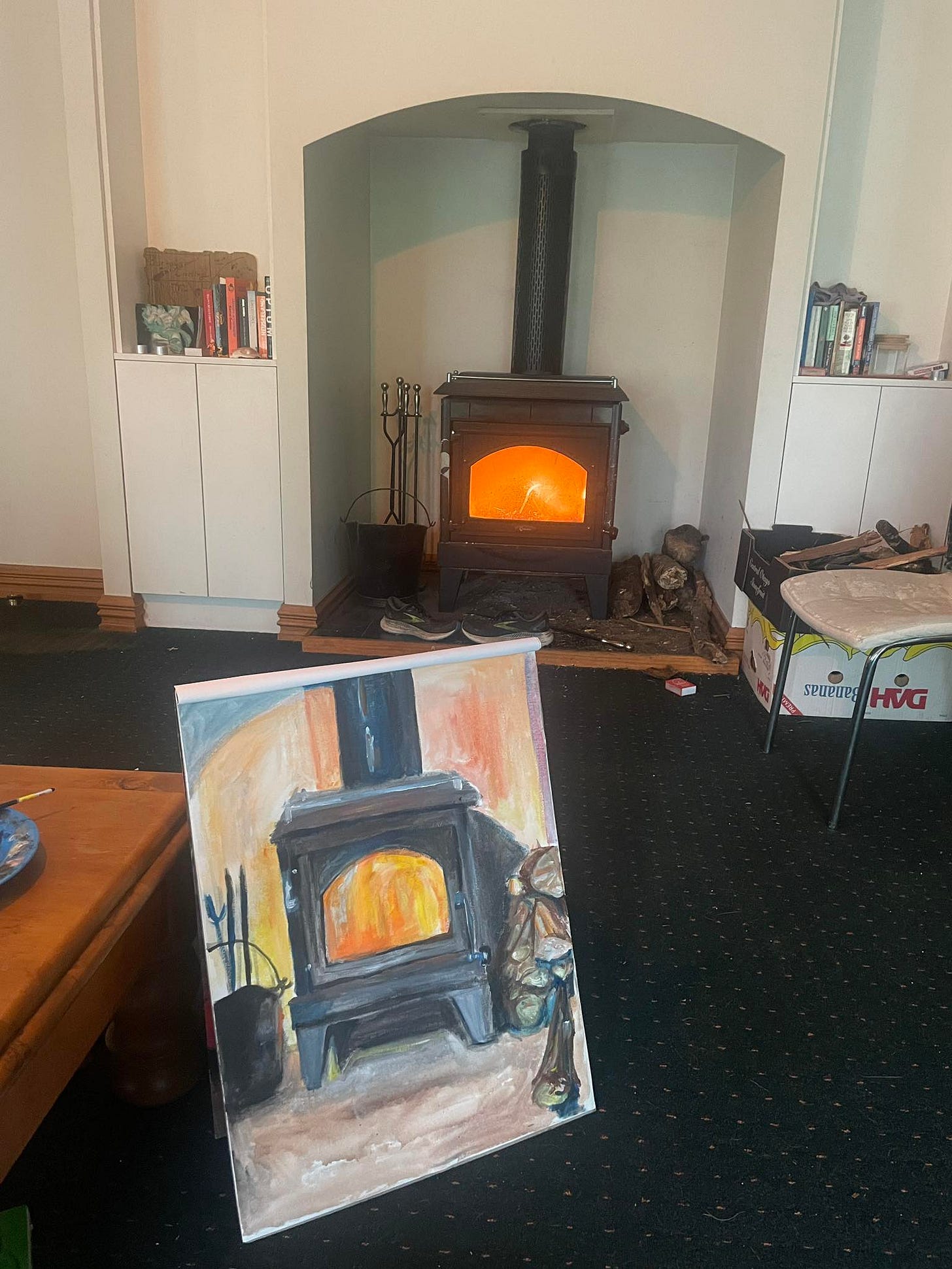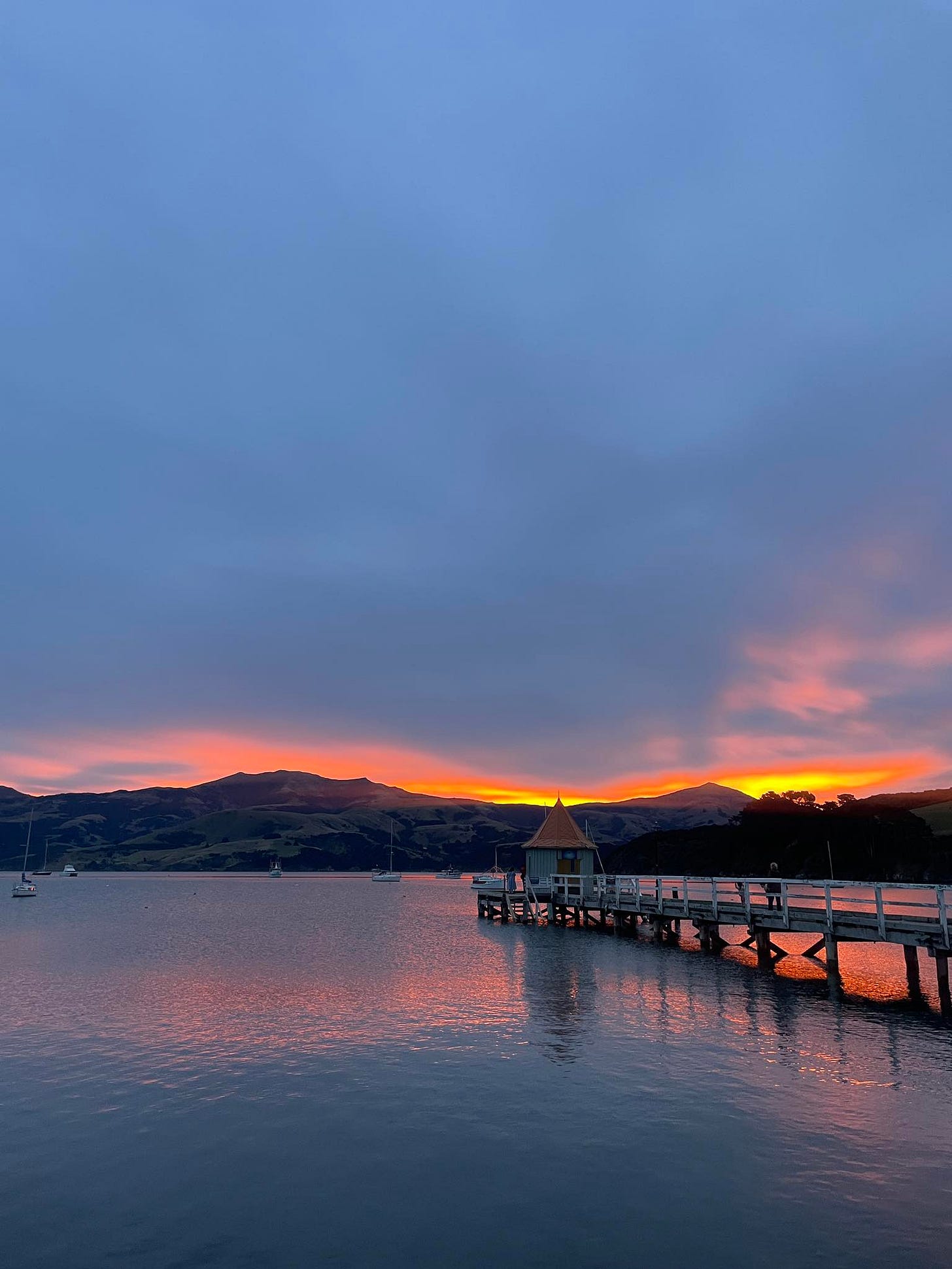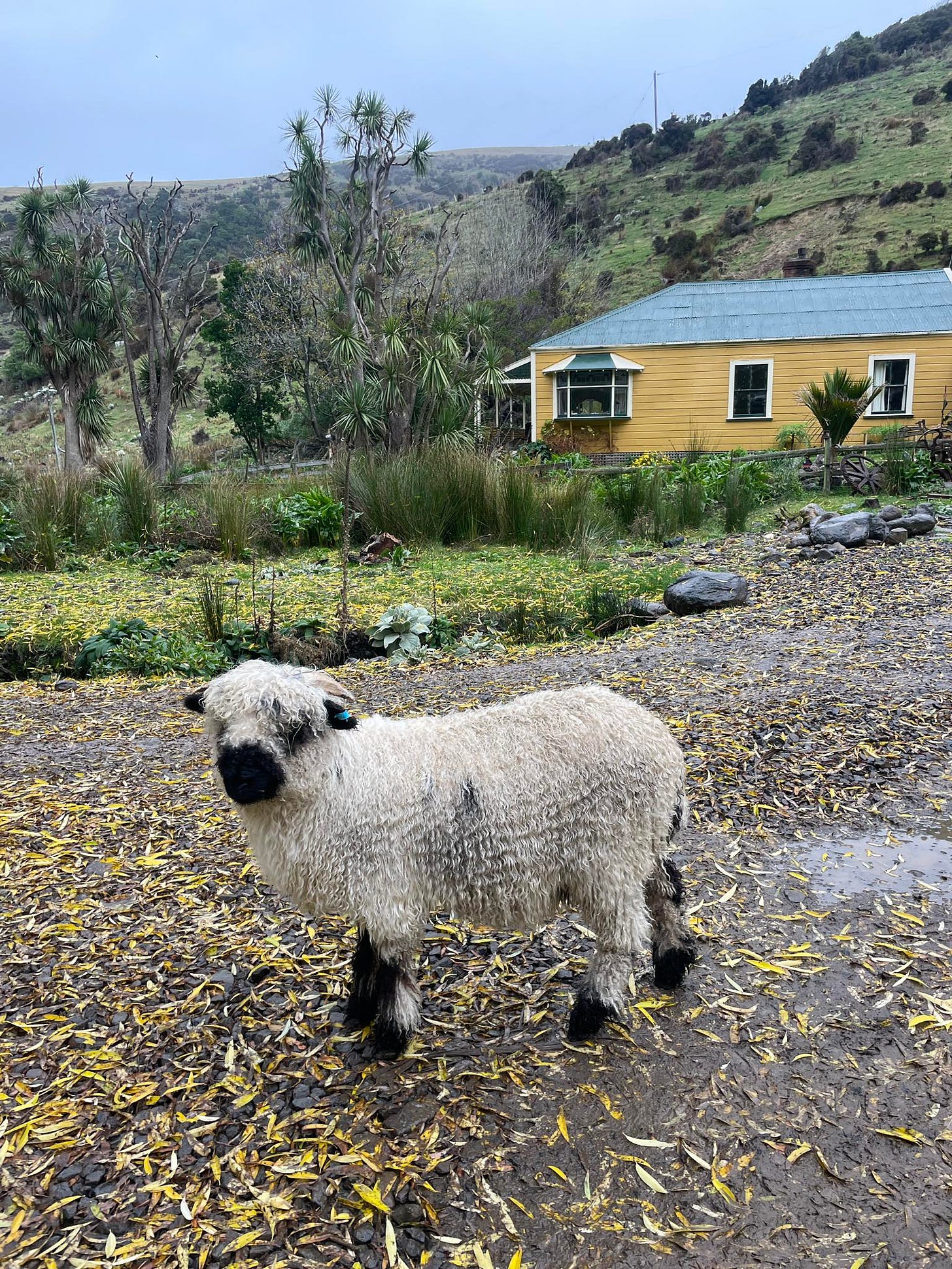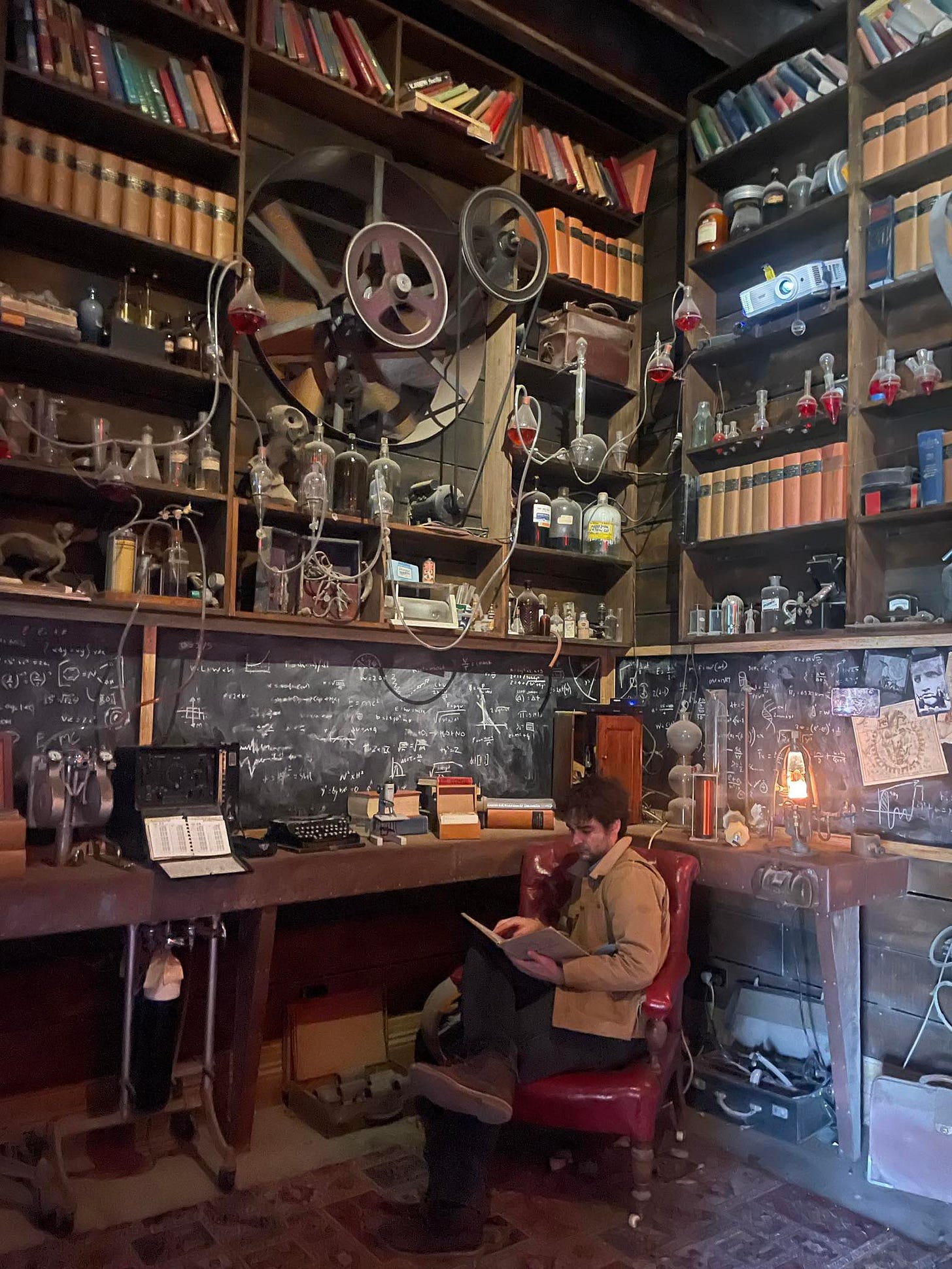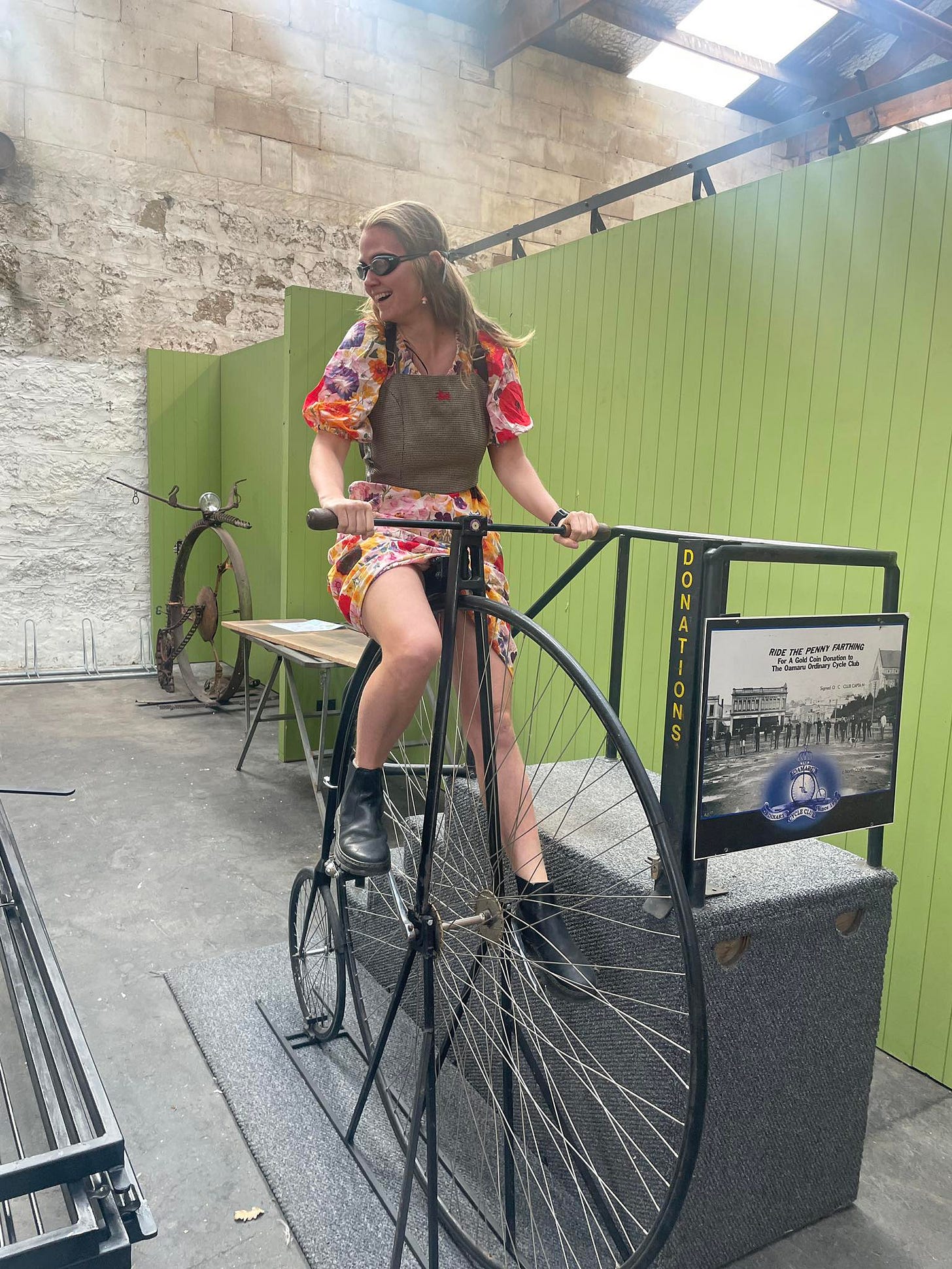Saying Goodbye to Akaroa and Goldie I
Also! Introducing Goldie II and reflecting on the “summer camp effect” of seasonal work
Hi from Oamaru! We left the Banks Peninsula on sunny Friday morning with happy tears welling in our eyes. As we backed out of the hellishly steep and weirdly angled driveway for the last time, our housemates waved to us from the porch like they do in the movies when the main character is leaving a place that has started to feel like home. We replayed all the songs everyone had sang at our going-away party, which had (d)evolved into a karaoke night where we were shocked to discover our British friends had never heard of the great “Jeremy” Buffet. We felt so lucky to have spent two months in such a special place.
But let’s back up a little bit, as our departure from Akaroa was far from guaranteed less than 24 hours before we left. When we last wrote, we mentioned we might be able to fix our van for a few hundred dollars. And a few spark plugs and a new battery initially appeared to get Goldie running again. Knowing the fixes were in some ways “experimental” as we might have more serious engine problems, we waffled between cautious optimism and skepticism that these were the end of our car troubles. Due to our 12-hour weekend shifts, we waited until Monday to do a proper test drive. We had not even driven a full mile before the car began to make terrible noises. We pulled over, confirmed the car was good on oil as we had been advised, and tentatively began to drive again. In less than a few hundred feet, the car sputtered to a complete stop as it had on our fated attempt to see the Southern Lights. Buggered! This time, we had a feeling it was the end.
As soon as the roadside service technician arrived, he told us the oil was empty. We began to doubt that we knew how to properly check a dipstick…until we heard a “whoa” when he peered under the car. Our car literally blew a hole in the engine and expelled all its oil in a dramatic last gasp. Unfortunately, because we lived in a small town with one mechanic, we had already waited about two weeks to get it repaired the first time, meaning we were now without a van two days before we were scheduled to leave town. We had 72 hours (while we were still working shifts at the restaurant) to find a wrecker for our car willing to drive out to the peninsula with a tow truck and hopefully pay a few hundred dollars for parts, and find a replacement van from someone willing to not only drive it all the way out to the peninsula, but to do a pre-purchase inspection in the city that we had no way of attending due to the lack of public transit off the peninsula. Whew! My new rule for living somewhere is that it has to have at minimum *two* mechanics, and there has to be some means of escape without a car!
Somehow, we managed to have our wrecked van towed away and purchased a replacement car less than 24 hours before our planned departure from Akaroa. Thankfully for us, our car broke down at the start of winter, meaning a lot of backpackers are leaving the country and selling vans for incredibly cheap. We managed to get a van that we think is an upgrade for less than half the price of our other van. As soon as we drove the new, freshly inspected car (which is a year older than Goldie), I realized what poor shape Goldie had been in from the moment we bought it. I just hadn’t realized because I thought old cars just sounded like that! Since the previous owner had, by chance, also lived in Akaroa, we joked that the reason we struggled to find work anywhere else was because Goldie was coming home to her final resting place. And honestly, the car would have probably died a lot sooner if we hadn’t had such a walkable lifestyle in Akaroa! It felt really good to realize that we could have a non-car-centric lifestyle even while literally living in one.
While I have certainly learned a lot about cars that I never really wanted to, it always feels good to gain some life skills and knowledge that will help prevent future problems. And while we certainly would change some things if we could do it over again, we also feel like we had a bit of bad luck. We had taken the car into the shop within a week of purchasing it to have its “warrant of fitness” redone for our own peace of mind and because of some issues with the starter. And the mechanic didn’t say anything about our battery or our engine being in terrible condition! There are thousands of these used vans in New Zealand, and all the postings seem pretty much the same. They’re old cars with a lot of mileage, but they “run great” and “couldn’t have been a better travel companion.” There are so many factors that contribute to whether you get a good one or a dud that largely have to do with getting accurate information on the maintenance history, which is hard when the car may have been owned by five different backpackers in the last two years. Unfortunately, we didn’t know what to look for when we bought our first one, but we were determined not to make the same mistakes again.
So now we have Goldie II: still buzzing! We brought over a lot of the themed décor, so the spirit of Goldie lives on. Another converted minivan with the same basic amenities, it is functionally equivalent to our previous van. However, the mattress thickness, kitchen design, storage accessibility, and, most importantly, the things that keep the vehicle running, are all meaningful upgrades. While we certainly mourned the loss of our first real home together, Chris kept reminding us that all Goldie I really was were some flower seat covers and each other (cute, I know).
So were we crying from sheer relief that our new car actually made it out of the peninsula without breaking down? Maybe a little bit. But our tears were mostly for the memories and community we made even during our short time on the peninsula. We joked with our housemates that we weren’t quite sure how we had gone from minimizing time spent in the dingy house and being hesitant to get to know each other to hanging out almost every night and having truly heartfelt goodbyes that we hoped were see-you-laters. Reader, it wasn’t just the wood-burning stove!
Our time in Akaroa really felt defined by what I call the “summer camp effect.” It’s that closeness you feel with people whom you have spent a short, usually finite, period of time that feels somewhat separated from normal life, both in physical isolation of the place and also the intensity of time spent around the same people. I think I first put words to this after my experience as a camp counselor in college, where I would leave each week in the Blue Ridge Mountains feeling like it couldn’t be possible to feel more connected to another group of humans. But these experiences aren’t limited to camps – I’ve felt it on church retreats, study abroad programs, or even conferences or weekend trips. I sometimes think that you could find a way to connect or empathize with almost anyone if you create a reason for a shared experience, a few challenges to bond over, and time to get to know each other. Just being fully present with other people in an environment that is the main/only thing everyone is doing is part of what can make these experiences feel so sublime.
As I’ve gotten older, these experiences feel more rare. The pull of everyone’s “normal life” in adulthood make it less common to have an extended period away for a shared experience with a group of people. Sure, there are vacations, but these are usually spent with immediate family or friends rather than a broader group. The summer camp effect provides some of the things that people want from community – easy, regular access to not only social interaction (the “can see people without scheduling weeks in advance/can just drop by to say hi” kind), but also some degree of communal living (the “borrow a cup of sugar from a neighbor” kind, at minimum). Becoming seasonal workers in a small town while living with our coworkers gave us easy access to this type of community in a way that felt harder to build in our “normal lives” (both living in cities and small towns!) There’s a world in which seasonal work doesn’t produce this effect. Maybe you hang out at the weekly “hospitality workers night” in town but keep everything pretty shallow. Major credit goes to Chris for putting himself out there with organizing not only a full D&D campaign, but also other social events like an “it’s everyone’s birthday” party and a s’mores night. This initiative really brought people together, and doing something creative together strengthened bonds already being formed.
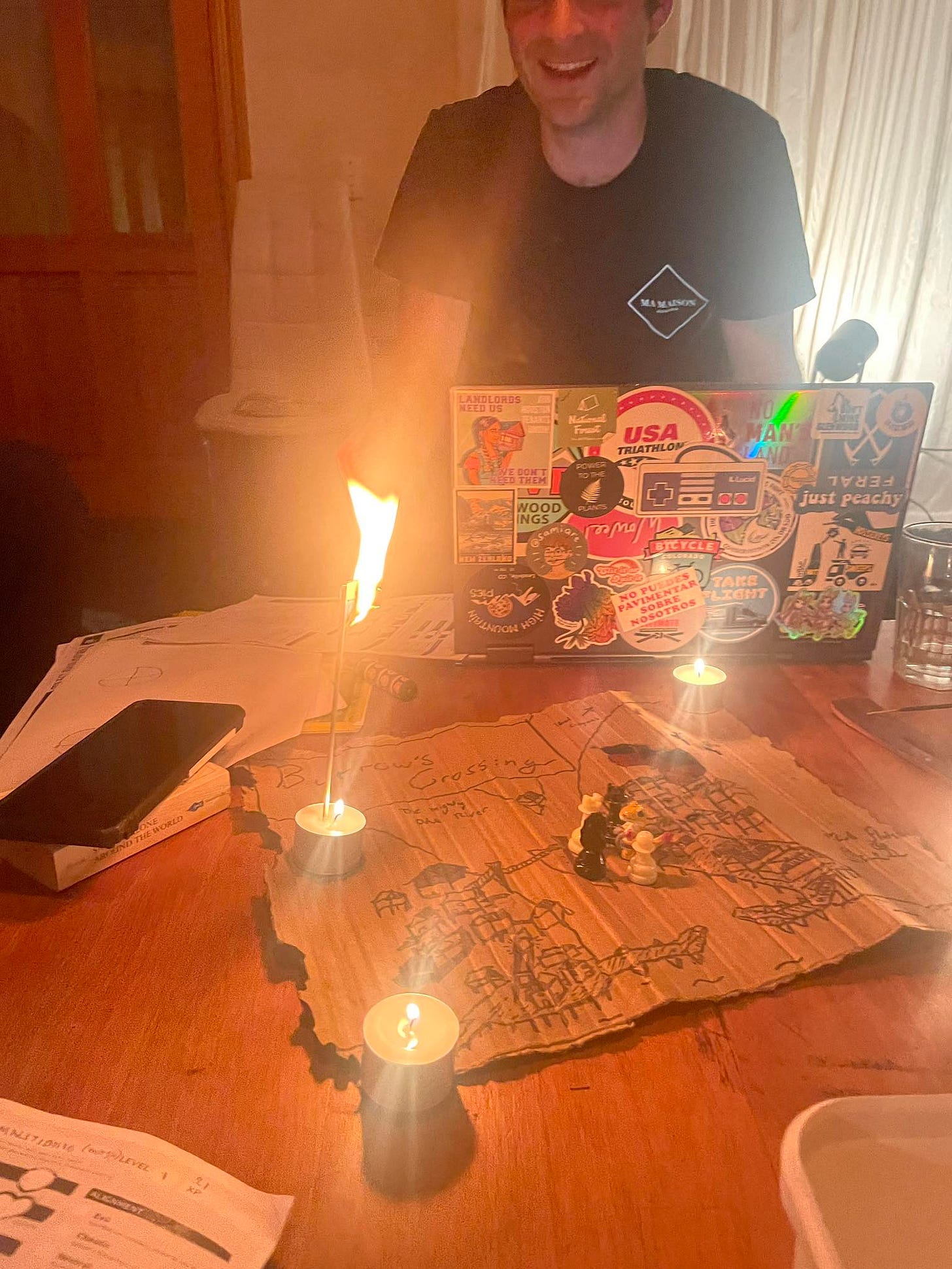
And yet, to some extent, these experiences are what they are because they are temporary. Yes, we met people we would be friends with outside of this experience, and we also could imagine ourselves enjoying living in a place like this under different circumstances. But were we all to be in this specific situation for too much longer, our dissatisfaction with the housing situation, work issues, and general sense of direction in our lives could make the experience go stale. For this reason, we didn’t leave wishing it could have been longer. We feel really grateful that we found what we were looking for and more in our time in Akaroa, and for the people who made it a meaningful experience. We’re also continuing to think about how we can bring aspects of this type of experience into a place we live longer term. Ideally one with more than one mechanic in town!
So what’s next? We’ve (successfully, no small feat!) driven four hours south to the town of Oamaru, where we are attending the annual Steampunk Festival in the Steampunk Capitol of the World! Luckily, one of our housemates decided to join, so we didn’t have to say all our goodbyes at once. After this, we’ll be doing some more travelling on the South Island, down to Dunedin and the Catlins/Otago Peninsula, then over to Te Anau and Milford/Doubtful Sound before heading back up to the North Island so we don’t freeze in our van. We’ve also started to map out the next few months in New Zealand, including a weeklong volunteer stay at a bird sanctuary (which reminds me that we still plan to write an extended post about our conservation work!), so stay tuned!

